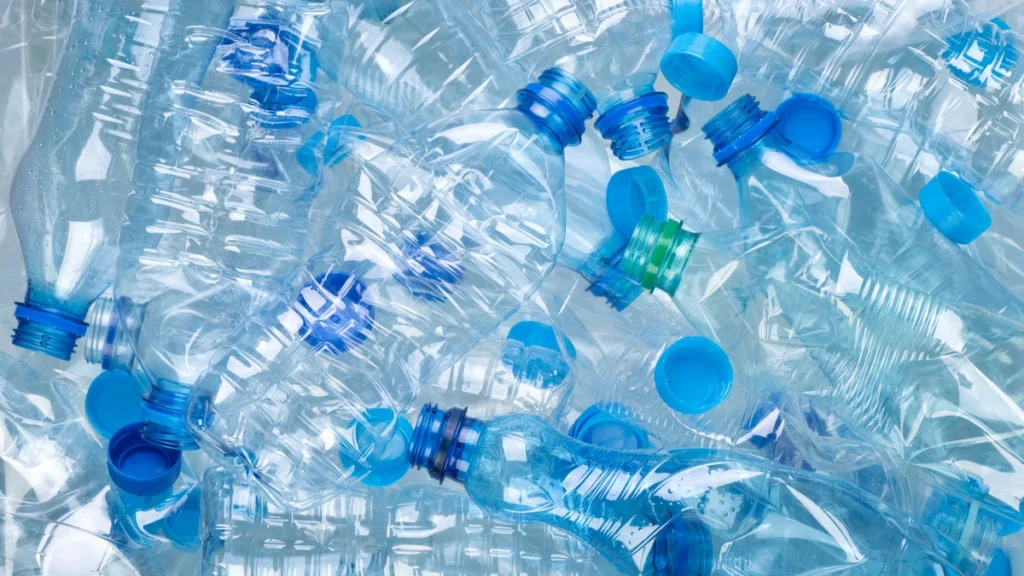Table of Contents
Introduction: The Plastic Predicament
Plastic pollution has become an undeniable issue in today’s world. From oceans to landfills, plastic waste seems to be everywhere we turn. Among the many culprits contributing to this crisis are plastic water bottles. But what if I told you there’s a simple yet impactful way to combat this problem? Enter the art of reusing plastic water bottles. In this article, we’ll delve into the reasons why reusing these bottles matters more than you might think.
Understanding the Impact
Plastic pollution poses a significant threat to our environment and wildlife. Every year, millions of tons of plastic end up in our oceans, harming marine life and ecosystems. Plastic water bottles, in particular, contribute to this problem due to their widespread use and improper disposal. But what if we could minimize this impact by reusing these bottles instead of tossing them after a single use?
Why Reuse Plastic Water Bottles?

Reuse is often touted as a sustainable solution to mitigate the environmental impact of single-use items like plastic bottles. By using a bottle multiple times, we can reduce the amount of waste generated and decrease the demand for new plastic production. Additionally, reusing bottles can save money and conserve resources that would otherwise be used in manufacturing new ones.
Concerns About Reusing Plastic Bottles
Despite the potential benefits, there are valid concerns surrounding the reuse of plastic water bottles. Over time, these bottles can develop scratches, cracks, and crevices where bacteria can thrive. Moreover, repeated washing and exposure to heat can cause the plastic to degrade, leading to the leaching of harmful chemicals into the water.
Alternatives to Reusing Plastic Water Bottles
In light of these concerns, many individuals opt for alternative materials for reusable bottles. Stainless steel and glass bottles offer durable and non-toxic alternatives to plastic. Additionally, there are BPA-free plastic options available that reduce the risk of chemical leaching.
The Purpose of Reusing Plastic Bottles
The primary purpose of reusing plastic bottles is to reduce waste and minimize the environmental impact of single-use plastics. By extending the lifespan of a bottle through reuse, we can lessen the burden on landfills and reduce our carbon footprint. Reusing also promotes resource conservation and encourages a shift towards more sustainable consumption habits.
What Plastic Bottles Can Be Reused?
Not all plastic bottles are suitable for reuse. It’s essential to choose bottles made from high-quality, food-grade plastics that are free from harmful chemicals like BPA (Bisphenol A). PET (Polyethylene Terephthalate) and HDPE (High-Density Polyethylene) bottles are generally considered safe for reuse, provided they are properly cleaned and maintained.
Tips for Safely Reusing Plastic Bottles
To ensure the safety of reused plastic bottles, it’s crucial to follow proper hygiene practices. Thoroughly wash the bottle with hot, soapy water after each use, and allow it to air dry completely. Avoid exposing plastic bottles to extreme temperatures or harsh chemicals, as these can accelerate degradation and increase the risk of chemical leaching.
Environmental Impact of Plastic Bottle Production
The environmental impact of plastic bottle production extends beyond waste generation. The manufacturing process requires significant energy and resources, contributing to carbon emissions and pollution. By reducing the demand for new plastic bottles through reuse, we can help alleviate the environmental burden associated with their production.
Recycling vs. Reusing Plastic Bottles
While recycling is often promoted as a solution to plastic pollution, it’s important to recognize the limitations of this approach. Recycling requires energy and resources and is not always feasible due to contamination or lack of infrastructure. Reusing bottles offers a more direct and effective way to reduce waste and promote sustainability.
Educational Initiatives and Awareness
Educating the public about the environmental impact of plastic pollution is crucial for fostering sustainable behaviors. Awareness campaigns, recycling programs, and initiatives promoting reusable alternatives can help empower individuals to make eco-friendly choices and reduce their reliance on single-use plastics.
Reducing Plastic Waste
One of the most compelling reasons to reuse plastic water bottles is the significant reduction in plastic waste. Think about it: every time you reuse a bottle, you’re preventing another one from ending up in a landfill or floating in the ocean. By extending the lifespan of these bottles, we can collectively decrease the demand for new plastic production and ultimately lessen the burden on our planet.
Conserving Resources
Producing plastic requires valuable resources such as oil and water. By reusing plastic water bottles, we’re effectively conserving these resources and reducing the environmental footprint associated with their production. This means fewer greenhouse gas emissions, less energy consumption, and overall, a lighter burden on the planet.
Saving Money
Let’s face it: buying single-use plastic water bottles can add up over time. By investing in a reusable bottle and refilling it as needed, you’ll not only save money in the long run but also contribute to a greener planet. Plus, many establishments now offer discounts or incentives for customers who bring their reusable containers, making it a win-win situation for both your wallet and the environment.
Promoting Sustainability
In today’s eco-conscious world, sustainability has become a buzzword for good reason. By choosing to reuse plastic water bottles, you’re actively participating in a more sustainable lifestyle. It’s a small but meaningful step towards reducing your carbon footprint and preserving the planet for future generations. So why not join the movement and make a difference, one refillable bottle at a time?
Embracing Convenience
Some may argue that single-use plastic bottles are more convenient than their reusable counterparts. However, with the availability of portable water filters and refill stations, it’s easier than ever to enjoy clean, refreshing water on the go without resorting to disposable bottles. By making a habit of carrying your reusable bottle with you, you’ll not only save time and money but also contribute to a cleaner environment.
Busting the Myth of Plastic Bottle Safety
There’s a common misconception that reusing plastic water bottles can pose health risks due to the potential for chemical leaching. However, many reusable bottles are made from safe materials such as BPA-free plastic or stainless steel, eliminating this concern. As long as you properly clean and maintain your bottle, there’s no reason why you can’t enjoy the benefits of reusing it again and again.
Inspiring Others to Follow Suit
Leading by example is a powerful way to inspire others to adopt more sustainable habits. By proudly using your reusable water bottle wherever you go, you’re sending a message to those around you that small changes can make a big difference. Who knows? You might just spark a ripple effect that encourages others to rethink their reliance on single-use plastics and embrace a more eco-friendly lifestyle.
Conclusion: A Call to Action
In conclusion, the practice of reusing plastic water bottles holds immense potential to combat plastic pollution and promote a more sustainable way of life. From reducing waste and conserving resources to saving money and inspiring others, the benefits are clear. So the next time you reach for a bottle of water, ask yourself: could I be making a difference by choosing to reuse? Together, let’s take a stand against plastic waste and embrace the power of reuse, one bottle at a time.
Read Also:-WELLHEALTHORGANIC STRESS MANAGEMENT
FAQs
Are all plastic bottles safe to reuse?
While some plastic bottles are safe for reuse, it’s essential to choose bottles made from food-grade plastics and to follow proper hygiene practices.
How many times can a plastic water bottle be reused?
The lifespan of a plastic water bottle depends on factors such as material quality, usage, and maintenance. It’s advisable to inspect the bottle regularly for signs of wear and replace it if necessary.
What are the environmental benefits of reusing plastic bottles?
Reusing plastic bottles helps reduce waste, conserve resources, and decrease the demand for new plastic production, thus lowering carbon emissions and mitigating environmental degradation.
Can I safely reuse single-use plastic bottles?
While single-use plastic bottles are not designed for repeated use, some individuals choose to reuse them. However, it’s important to be aware of the potential health risks and to exercise caution when doing so.
What are some alternatives to plastic water bottles?
Stainless steel, glass, and BPA-free plastic bottles are popular alternatives to traditional plastic water bottles. These materials offer durability, safety, and sustainability benefits.






